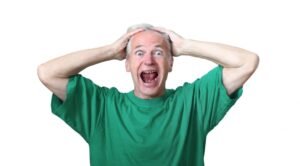Treatment for Depression: An Introduction
Treatments for depression have come a long way in the last couple of decades with many advancements in psychotherapy and psychological treatments that have been empirically supported by research. Research into cognitive behavioral therapy, behavior therapy and interpersonal therapy have now been conclusively found to be effective. Evidence has also been found to support the use of cognitive therapy and reminiscence therapy among senior adults. A review of each of the main specific therapeutic modalities follows below.
Treatment for Depression: Cognitive Behavioral Therapy
Cognitive behavioral therapy was originally developed by Aaron Beck M.D. in the late 1960’s. It has easily become the most popular treatment modality for depression, anxiety disorders and a multitude of other mental health conditions. Cognitive behavioral therapy focuses on the connection between thoughts, moods and behaviors and utilizes primarily the thoughts as the main intervention point to modify moods and ultimately behaviors. It recognizes the negative bias that many people develop that results in biased information processing and dysfunctional beliefs that lead to and maintain depression. The main goal is to identify and change the dysfunctional or maladaptive thinking which is believed to then consequently change the individual’s affect and behaviors.
Cognitive behavioral therapy is traditionally provided within a structured format that facilitates learning experiences, monitoring thoughts, development of more adaptive coping skills and Socratic questioning of maladaptive thinking. A full course of cognitive behavioral therapy may involve 14 to 16 sessions along with booster sessions whenever necessary. There has been significant evidence over the last several decades recognizing the effectiveness of cognitive behavioral therapy in treating depression. Various outcome studies have found it to be at least as effective as pharmacotherapy and may be more effective than depression medications alone in assisting with preventing relapse of depressive symptoms. A more recent field of cognitive behavioral therapy has also had an increased interest and attention in that it has integrated the concept of mindfulness as well into the traditional cognitive behavioral model, in an attempt to reduce the incidence of relapse.
Behavior Therapy Treatment of Depression:
Behavior therapy focuses on the use of reinforcement and extinction of behaviors that are found to be either positive or negative. Behavior therapies focus on increasing the quality as well as the frequency of pleasant experiences which are then expected to result in improvements in an individual’s mood. A structured treatment program that was developed utilizing this theoretical perspective is the Coping With Depression course. This course uses the format of a psychoeducational group which usually consists of 12 sessions over approximately eight weeks, and then uses skills training to improve social skills. The objective is then to increase activities that are pleasant as well as to teach individuals how to relax. Some recent evidence has found that the use of this Coping With Depression course is at least as effective as antidepressant medications in treating depression in the short-term and possibly even over the long-term.
Interpersonal Therapy for Depression:
An interpersonal therapy model for depression was developed by Klarman, Wiseman and Associates in the 1980’s. The basis for Interpersonal therapy is the Interpersonal model of depression which considers depression to be the result of or to be exacerbated by interpersonal difficulties between people. As a result, interpersonal therapy focuses on remediating these interpersonal problems. Interventions may focus on role transitions, or disputes, interpersonal deficits and skills and even grief issues which have been denied, delayed or may be inadequately completed.
Interpersonal therapy is also provided within a structured format and utilizes a progression through three phases: (1) the diagnosis and identification of specific areas of interpersonal difficulties as well as an explanation of the course of therapy; (2) focus on resolution of the specific problematic areas or difficulties and (3) termination of therapy. This type of therapy has been utilized in a modified format among several specific populations such as adolescents and the elderly and has been used for other mental health disorders as well. Interpersonal therapy has been demonstrated to be effective for both the acute and maintenance phases of depression.
Learned Helplessness Treatment Model for Depression:
Significant research has also recognized the importance of the learned helplessness model for the development and maintenance of depression. Learned helplessness is based upon a model by Martin Seligman Ph.D. in the early 1960’s in which he recognized that there was a connection between an individual’s sense of control over their environment and depression. He found that an individual’s inability to have a sense of control over adverse circumstances in their environment resulted in a sense of helplessness and ultimately depression. He believed this perspective and consequent depressed mood was basically a learned experience. This model recognizes the need for increasing an individual’s sense of control over their environment, reducing feelings of helplessness, hopelessness and depression.
Treatment for Depression: Conclusion
Research and my (Paul Susic Ph.D. Licensed Psychologist) clinical experience has found over the last several decades that optimal treatment for depression may include both psychotherapy and/or psychological treatments along with medications for the most effective treatment of major depressive disorder. Although medications frequently are prescribed as a front-line treatment for depression, this physiological focus is often not ideal. Medications alone have been found to have higher relapse risks of additional episodes than psychotherapy alone. In most cases it seems that the most effective approach may be to attempt to remediate the depression with psychotherapy and then add medication as necessary rather than trying medication and then adding psychotherapy as an adjunct treatment.
By Paul Susic Ph.D. Licensed Psychologist



